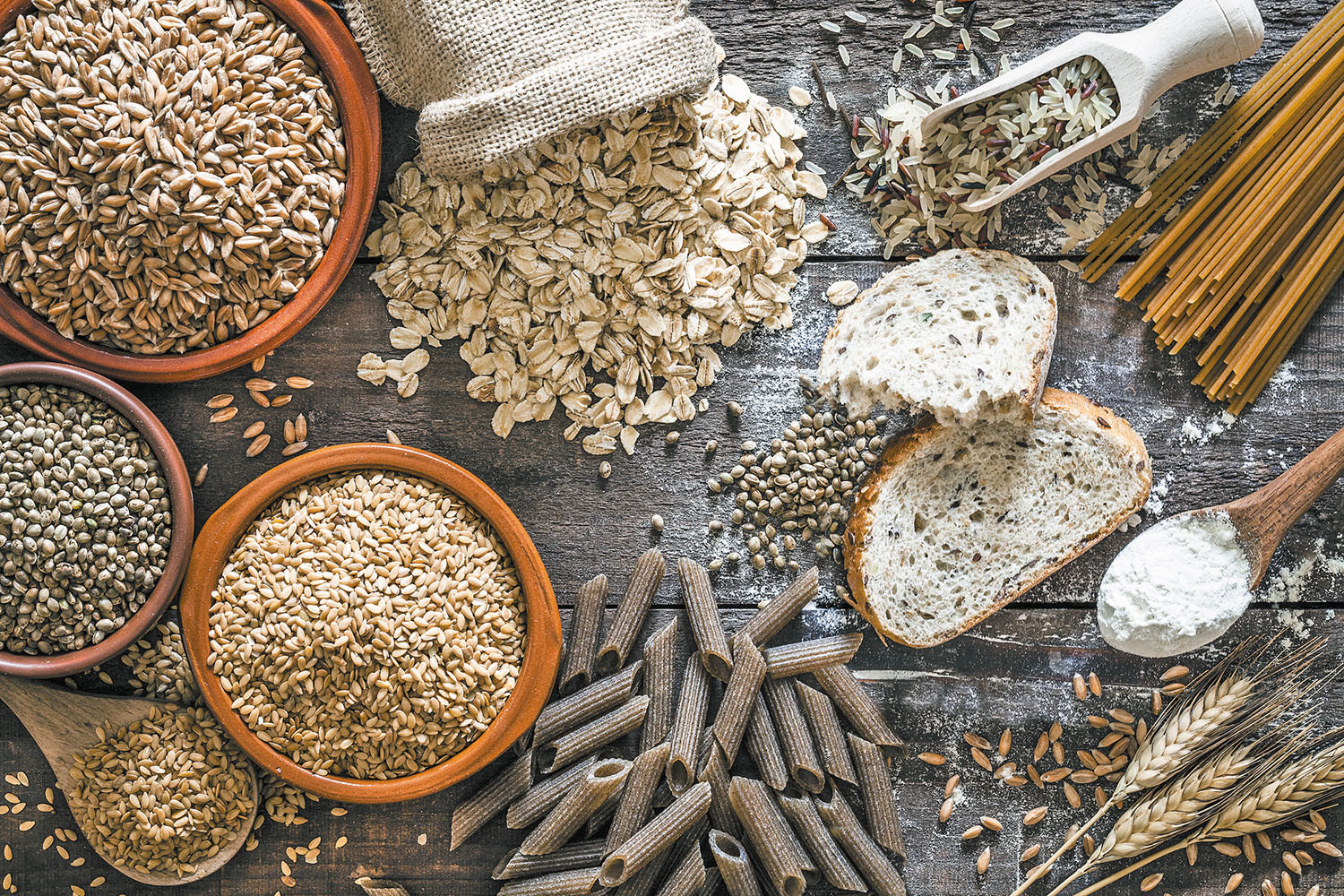
New thinking about plaque in arteries that feed the brain

Want to prevent shifting teeth? Maybe you need retainers

What you need to know about the new dietary guidelines

Food that’s healthier for people and planet can be cheaper, too

New evidence that polyphenol-rich foods help the heart

8 simple ways to reduce ultra-processed foods in your diet

How to curb your stress eating

How to spot Parkinson’s disease symptoms

Heart failure symptoms in women: How they’re different

GERD diet: Foods to avoid to reduce acid reflux
Nutrition Archive
Articles
What to order at the coffee shop
Trendy new options are fresh and appealing, but they may not be good for you.
Image: © NatashaPhoto/Getty Images
The. hot item in coffee shops isn't just coffee. Now, along with inventive brews, many shops are offering fresh gourmet noshes that rival food at chic cafes. That means you'll find treats and dishes with all the buzzwords attached, including "house-baked," "handcrafted," and "locally sourced." It also means you may be tempted to eat something that's unhealthy, especially if you're ordering quickly because eight people are in line behind you.
New on the menu
More coffee shops are ditching prepackaged pastries and sandwiches, and operating tiny kitchens that crank out breakfast with flair. For example:
The lowdown on low-calorie sweeteners
If you're addicted to sweet, bubbly beverages, diet sodas are a better choice than sugary ones. But try switching to healthier options.
Image: © NoDerog/Getty Images
Despite the abundance of added sugar in America's food supply, our love affair with sugary drinks has been waning over the past decade or so.
"In adults, we've seen a 25% drop in the consumption of sugar-sweetened beverages, and I think this trend will continue, given the heightened awareness of the harmful effects of excess sugar," says Dr. Frank Hu, chair of the Department of Nutrition at the Harvard T.H. Chan School of Public Health. Sugary drinks (such as sodas, sports drinks, and lemonade) are the biggest source of added sugar in the American diet and are widely considered to be among the main drivers of the obesity epidemic. A high-sugar diet also has been linked to increasing rates of high blood pressure, high cholesterol, and diabetes, all of which contribute to heart disease.
Vegetable of the month: Sweet potatoes
Image: © HONG VO/Getty Images
Although people often think of sweet potatoes as a Thanksgiving side dish, these root vegetables are available year-round. They're becoming more popular, too: sweet potato consumption rose by nearly 42% between 2000 and 2016, according to the USDA.
The many varieties of sweet potatoes belong to the morning glory family, Convolvulaceae. The skins range in hue from almost white to dark red, with a few types sporting purple skin. Those unusual varieties may also have lavender or purple flesh. But the most common flesh colors range from white to deep orange.
“Prehabilitation” may improve heart surgery recovery
Image: Thinkstock
Research we're watching
After heart surgery, patients often enroll in cardiac rehabilitation, a multiweek program of structured exercise paired with lifestyle and nutrition education. A new review suggests that a similar program done prior to surgery, known as "prehabilitation," may help older, frail people to recover better from heart surgery.
The prehab approach goes by the acronym NEW, which stands for nutritional status, exercise capacity, and worry reduction. Targeting those three factors seems to improve people's physical and psychological readiness for undergoing surgery, according to the article, published in the July Canadian Journal of Cardiology.
Specialized diet gets high marks for preventing cancer
In the journals
Following a specific cancer prevention diet may help you lower your overall risk, according to a study in the August 2018 Cancer Research.
The diet from the World Cancer Research Fund/American Institute for Cancer Research (WCRF/AICR) emphasizes a plant-based diet rich in whole grains, vegetables, fruits, and legumes like beans and lentils, with limited amounts of red or processed meat (no more than 18 ounces per week) and a strong emphasis on eliminating all processed foods, sugar-sweetened drinks, and alcohol.
Can a gluten-free diet help my skin?
Ask the doctors
Image: © fcafotodigital/Getty Images
Q. I have terrible skin, and a friend recently recommended that I eliminate gluten from my diet to help manage my condition. Will this work?
A. Not necessarily. Gluten has gotten a lot of attention in recent years. Some people believe that eating gluten can inflame the skin and, therefore, cutting it out will help relieve red, inflamed skin or other skin conditions, such as psoriasis or eczema.
Don’t let winter put a chill on your vegetable intake
It may take a little more effort, but some simple strategies can help you meet your recommended intake of veggies in the colder months.
Image: © stargatechris/Getty Images
In the summer, vegetables are plentiful. The supermarket shelves — and maybe even your own garden — are overflowing with zucchini and squash, tomatoes and asparagus. But as we head into the colder winter months, the offerings may be a little less inspiring.
"With summer vegetables becoming more expensive in the winter, people's eating variety may shrink," says Teresa Fung, adjunct professor in the Department of Nutrition at the Harvard T.H. Chan School of Public Health. "And when variety shrinks, often quantity shrinks as well."
Both high-carb and low-carb diets may be harmful to health
Research we're watching
Image: © AndreyPopov/Getty Images
The best dietary strategy when it comes to carbohydrate intake could be neither high-carb nor low-carb, but rather moderation. A study published online August 16 by The Lancet Public Health found that both high- and low-carbohydrate diets were associated with earlier death. But people who got about half to 55% of their calories from carbohydrates — which is considered a moderate amount — lived longer.
The research involved more than 15,000 adults ages 45 to 65 who were involved in the Atherosclerosis Risk in Communities study. Participants filled out a dietary questionnaire when they enrolled in the study, which began in 1987. Researchers then looked for links between what participants ate and their death from any cause over a median follow-up period of 25 years.

New thinking about plaque in arteries that feed the brain

Want to prevent shifting teeth? Maybe you need retainers

What you need to know about the new dietary guidelines

Food that’s healthier for people and planet can be cheaper, too

New evidence that polyphenol-rich foods help the heart

8 simple ways to reduce ultra-processed foods in your diet

How to curb your stress eating

How to spot Parkinson’s disease symptoms

Heart failure symptoms in women: How they’re different

GERD diet: Foods to avoid to reduce acid reflux
Free Healthbeat Signup
Get the latest in health news delivered to your inbox!
Sign Up











